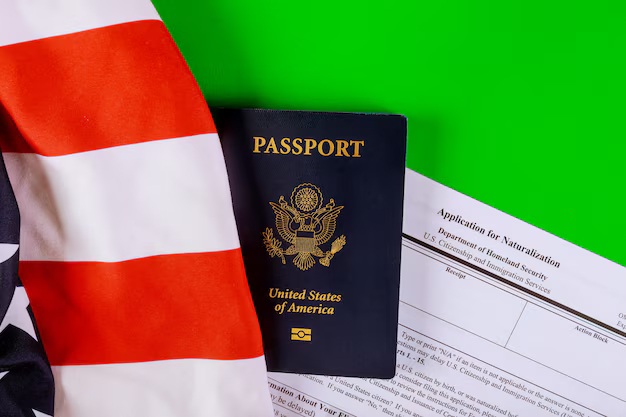H1: Naturalization vs. Citizenship: What’s the Difference?
Understanding the difference between naturalization and citizenship is essential for anyone navigating the U.S. immigration process. While the two terms are closely related and often used interchangeably, they refer to distinct legal concepts. Citizenship is a status that grants individuals full rights and responsibilities under U.S. law, whereas naturalization is the legal process through which a non-citizen becomes a U.S. citizen. In this blog, we’ll break down the key differences between naturalization vs. citizenship, examine the paths to each, and help clarify what these terms mean for immigrants, permanent residents, and those born in the U.S.
H2: Naturalization vs. Citizenship: Understanding the Terminology
Before diving into the legal processes, it’s important to define the terms. This section clarifies what “citizenship” and “naturalization” mean in the context of U.S. immigration law and how they differ in purpose and application:
H3: Citizenship Defined
Citizenship is the legal status that grants a person full rights and protections under the U.S. Constitution. Citizens have the right to vote, hold public office, receive a U.S. passport, and access federal jobs and benefits. Citizenship can be obtained in two main ways: by birth or through naturalization.
H3: Naturalization Explained
Naturalization is the process by which a lawful permanent resident (Green Card holder) voluntarily becomes a U.S. citizen. It involves meeting eligibility criteria, submitting a formal application, passing exams, and taking an oath of allegiance. Naturalized citizens hold the same rights as those born in the U.S.
H2: Citizenship by Birth vs. Naturalization
U.S. citizenship can be acquired in different ways, and the distinction between being born a citizen and becoming one through naturalization is important. This section explores how each path works and who qualifies under each category:
H3: Citizenship by Birth
Anyone born within the United States or its territories automatically acquires citizenship at birth under the 14th Amendment, regardless of the parents’ immigration status. Children born abroad to U.S. citizen parents may also acquire citizenship at birth, depending on specific conditions.
H3: Citizenship Through Naturalization
In contrast, naturalization is not automatic. It requires a formal application and approval process. Only individuals who were not born U.S. citizens—but meet specific residency and legal requirements—can go through naturalization to gain citizenship.
H2: Naturalization vs. Citizenship: Eligibility Requirements
The qualifications for U.S. citizenship vary depending on how it’s obtained. This section outlines the specific eligibility requirements for naturalization and explains who automatically qualifies for citizenship by birth:
H3: Who Can Apply for Naturalization?
To apply for naturalization, individuals must:
H4: Be at Least 18 Years Old
Applicants must be at least 18 years of age at the time they submit their naturalization application. This age requirement ensures that individuals are legally recognized as adults capable of fulfilling the responsibilities of citizenship.
H4: Hold a Green Card for a Minimum of 5 Years
To qualify for naturalization, most applicants must have been lawful permanent residents for at least five years. If married to a U.S. citizen, the required period is reduced to three years, provided the marriage is ongoing.
H4: Demonstrate Continuous Residence and Physical Presence
Applicants must show they have lived continuously in the United States for the required period and have been physically present for at least half of that time. Long absences or frequent travel outside the U.S. may impact eligibility.
H4: Show Good Moral Character
Naturalization applicants must demonstrate good moral character for the required period before applying. This good character includes obeying the law, paying taxes, and generally upholding community standards.
H4: Pass English and Civics Exams
Applicants are required to pass a two-part test: one covering English reading, writing, and speaking skills, and another covering basic U.S. history and government (civics). Some exemptions are available based on age and length of residency.
H4: Swear Allegiance to the U.S. Constitution
The final step in the naturalization process is taking the Oath of Allegiance, where applicants pledge loyalty to the United States and its Constitution. This formal ceremony marks the official start of their U.S. citizenship.
H3: Who Qualifies for Citizenship by Birth?
There are no application requirements for citizenship by birth in the U.S.—it is automatic. Individuals born abroad may acquire citizenship at birth if:
H4: At Least One Parent Is a U.S. Citizen
Children born outside the United States may automatically acquire U.S. citizenship at birth if at least one of their parents is a U.S. citizen. This provision applies regardless of the child’s place of birth, as long as other conditions are met.
H4: The Parent Meets Presence or Residency Requirements
To transmit citizenship to a child born abroad, the U.S. citizen parent must meet specific physical presence or residency requirements—typically a minimum number of years living in the United States before the child’s birth.

H2: Naturalization vs. Citizenship: The Application Process
Becoming a U.S. citizen involves different steps depending on your path. This section breaks down the formal naturalization process and contrasts it with how citizenship is acquired by birth or through parents:
H3: The Naturalization Process Step-by-Step
For those seeking U.S. citizenship through naturalization, the application process involves several formal steps. Each phase plays a critical role in determining eligibility and confirming a candidate’s readiness to become a citizen.
H4: 1. Submit Form N-400
The naturalization journey begins with submitting Form N-400 to U.S. Citizenship and Immigration Services (USCIS). This form collects personal information, immigration history, and eligibility details.
H4: 2. Attend Biometrics Appointment
After submitting your application, USCIS schedules a biometrics appointment to collect fingerprints, photographs, and a signature. These are used to conduct a thorough background check.
H4: 3. Interview and Testing
Applicants must attend an in-person interview with a USCIS officer, during which they’ll answer questions about their application and take the English and civics tests to demonstrate language proficiency and knowledge of U.S. history and government.
H4: 4. Receive a Decision
Following the interview and testing, USCIS will issue a decision. The application may be approved, continued (if more information is needed), or denied based on eligibility and results.
H4: 5. Take the Oath of Allegiance
Once approved, applicants are scheduled to take the Oath of Allegiance at a naturalization ceremony. This public pledge marks the official moment they become U.S. citizens, with all associated rights and responsibilities.
H3: Citizenship by Birth or Derivation
Those who are born in the U.S. need only present proof of birth (such as a birth certificate) to establish citizenship. Children may also derive citizenship automatically if a parent becomes naturalized before they turn 18 and meet residency conditions.
H2: Naturalization vs. Citizenship: Rights and Responsibilities
While all U.S. citizens share the same core rights and duties, the path to obtaining them may differ. This section compares the rights and responsibilities that come with citizenship, whether earned through naturalization or granted at birth:
H3: Rights of All Citizens
Whether obtained through naturalization or by birth, citizenship confers the same core rights:
H4: The Right to Vote in Federal Elections
One of the most important privileges of U.S. citizenship is the right to vote in federal elections. Naturalized and birthright citizens alike can participate in shaping the country’s leadership and policies.
H4: The Ability to Sponsor Relatives for Immigration
U.S. citizens can petition for a broader range of family members to immigrate, including parents, siblings, and married children—something permanent residents cannot do.
H4: Eligibility for a U.S. Passport
Citizenship grants eligibility for a U.S. passport, enabling visa-free or visa-on-arrival travel to over 180 countries and providing access to assistance from U.S. embassies while abroad.
H4: Access to Federal Jobs and Programs
Certain government jobs, contracts, and security clearances are only available to U.S. citizens. Citizenship also opens access to federal benefits and assistance programs that permanent residents may not qualify for.
H4: Protection From Deportation
Unlike Green Card holders, U.S. citizens—whether by birth or naturalization—cannot be deported. This protection provides peace of mind and stability for individuals and their families.
H3: Added Responsibilities
Citizens, regardless of how they acquired their status, must also:
H4: Pay Taxes
All U.S. citizens are required to pay federal, state, and local taxes, helping to fund government programs, infrastructure, education, and national defense, regardless of how they became citizens.
H4: Serve on Juries if Called
Jury service is a civic duty that comes with citizenship. Naturalized and birthright citizens may be summoned to serve on juries in both civil and criminal court cases.
H4: Defend the U.S. if Required
Citizens may be called upon to defend the country, particularly in times of national emergency or through mandatory military service registration for eligible individuals.
H4: Stay Informed and Participate in Civic Life
U.S. citizens are encouraged to stay informed about current events, vote in elections, engage in community discussions, and contribute to the democratic process.
H2: Naturalization vs. Citizenship: Dual Citizenship Considerations
Many immigrants wonder if they can keep their original nationality after becoming a U.S. citizen. This section explores how dual citizenship works, the implications for naturalized citizens, and what to consider when holding citizenship in more than one country:
H3: Can You Hold Dual Citizenship?
The U.S. permits dual citizenship, meaning a naturalized citizen may retain their original citizenship if their country of origin also allows it. However, naturalization applicants must still declare allegiance to the U.S. during the oath ceremony.
H3: Impacts of Dual Citizenship
Dual citizens can enjoy the benefits of both countries, such as travel and property ownership. However, they may also face double taxation or mandatory military service in their country of origin.
H2: Naturalization vs. Citizenship: Which Path is Right for You?
Choosing the best route to U.S. citizenship depends on your current immigration status and long-term goals. This section helps you evaluate whether naturalization is the next step or if you may already qualify for citizenship by birth or descent:
H3: Choosing to Naturalize
If you’re a permanent resident, naturalization is the next step toward full participation in American life. It secures your status and offers greater benefits than a Green Card, including voting rights and protection from deportation.
H3: Knowing Your Status
For many people, citizenship may already be theirs by birth or descent—even if they don’t realize it. It’s essential to confirm your status and gather the necessary documentation for proof.

H2: Naturalization vs. Citizenship: Which is Best for You?
While closely connected, naturalization vs. citizenship refers to two different things: one is a legal process, the other is a legal status. Citizenship can be granted by birth, passed through family, or earned through naturalization. Regardless of how it’s obtained, the rights and responsibilities are the same. Understanding where you stand—and how to move forward—can help you make informed decisions about your future. Whether you’re preparing to submit your naturalization application or simply exploring your options, knowing the difference between naturalization vs. citizenship is a key part of the immigration journey.
Want to take the next step toward U.S. citizenship? Visit Barba Inegol Law Firm’s blog for expert legal resources, updates, and guidance on the naturalization process.
Naturalization vs. Citizenship: Learn the key differences between U.S. citizenship by birth and the naturalization process in this immigration guide by Barba Inegol Law Firm.

